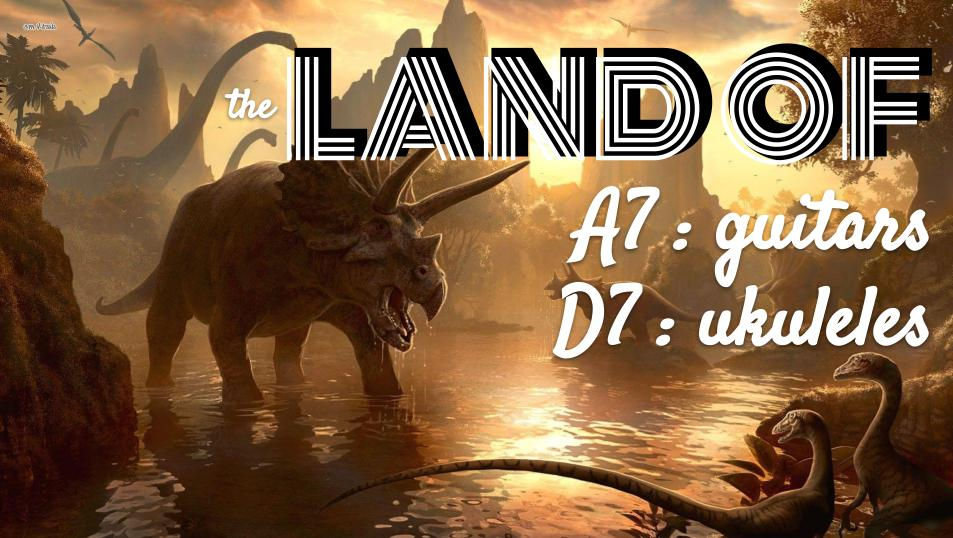The Land of A7...(and D7 for ukuleles)
- Jon Wheeler
- Feb 8, 2024
- 2 min read
Updated: Mar 4, 2024
I love it when I discover a chord trick that you can use on both the guitar and ukulele, it means I can share it with you, and no matter which you play, you can use it. I probably overuse it, but still…..

If you’ve spent anytime on youtube for guitar lessons, chances are you’ll have seen Marty Schwartz. I found a lesson of his, many years ago, called “The Land Of A7” and it’s basically a whole set of chords you can substitute for A7. If you read my blog on the ukulele / guitar relationship, you’ll perhaps have twigged that the A7 shape we’re discussing is the D7 shape on the ukulele - hence this trick or pattern can be used as a substitute for D7 on the ukulele in exactly the same way. Why is it called "The Land Of A7"? I don't know! I know it sounds like a massively dull sequel to "The Land That Time Forgot". I didn't invent it, but I do use it on both the guitar AND the ukulele regularly.
I can tell you’re not convinced. Watch Marty’s video whilst I draw up some diagrams for you, and I’ll catch you on the flipside for how you ukulele players can use it too, ok?
At about 6 minutes in, he plays some E7 variations too, don’t get distracted……

Ok. So here we’ve got a diagram showing the original chord position (A7 for guitars on the top, D7 for ukuleles below) and the first three positions up the neck after that, which are totally interchangeable with the original chord. Just to repeat what Marty said, play the original chord using your middle and ring finger, so that when you slide into the second position your index finger can pick up the note on the second string. I’ve made a little video here, just backing that up, and demonstrating the technique on the ukulele. For those up to speed on such things, in both instances I’m using the trick as the IV chord.
Full disclosure it was pretty early in the day, yes, I do refer to the ukulele as a mandolin at least twice, I know you know what I meant ;-)
FAQ
Why would I even want to do this?
One of the main blocks to getting more out of your playing is that people only play one voicing (one finger pattern) for virtually all their chords. It’s especially true on the ukulele. Ever had the feeling that whatever you play, every song sounds the same? Tricks like this make your playing more interesting, for you and your adoring audience. Give it a go, but like Marty says, to get the most out of it, you really need to get it “under your fingers” to get the most out of it. Let me know how you get on!



Comments